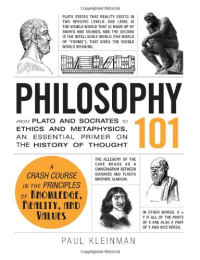- Main
- Computers - Artificial Intelligence (AI)
- The Myth of Artificial Intelligence:...

The Myth of Artificial Intelligence: Why Computers Can’t Think the Way We Do
Erik J. Larson“If you want to know about AI, read this book…it shows how a supposedly futuristic reverence for Artificial Intelligence retards progress when it denigrates our most irreplaceable resource for any future progress: our own human intelligence.”―Peter Thiel
A cutting-edge AI researcher and tech entrepreneur debunks the fantasy that superintelligence is just a few clicks away―and argues that this myth is not just wrong, it’s actively blocking innovation and distorting our ability to make the crucial next leap.
Futurists insist that AI will soon eclipse the capacities of the most gifted human mind. What hope do we have against superintelligent machines? But we aren’t really on the path to developing intelligent machines. In fact, we don’t even know where that path might be.
A tech entrepreneur and pioneering research scientist working at the forefront of natural language processing, Erik Larson takes us on a tour of the landscape of AI to show how far we are from superintelligence, and what it would take to get there. Ever since Alan Turing, AI enthusiasts have equated artificial intelligence with human intelligence. This is a profound mistake. AI works on inductive reasoning, crunching data sets to predict outcomes. But humans don’t correlate data sets: we make conjectures informed by context and experience. Human intelligence is a web of best guesses, given what we know about the world. We haven’t a clue how to program this kind of intuitive reasoning, known as abduction. Yet it is the heart of common sense. That’s why Alexa can’t understand what you are asking, and why AI can only take us so far.
Larson argues that AI hype is both bad science and bad for science. A culture of invention thrives on exploring unknowns, not overselling existing methods. Inductive AI will continue to improve at narrow tasks, but if we want to make real progress, we will need to start by more fully appreciating the only true intelligence we know―our own.
该文件将通过电报信使发送给您。 您最多可能需要 1-5 分钟才能收到它。
注意:确保您已将您的帐户链接到 Z-Library Telegram 机器人。
该文件将发送到您的 Kindle 帐户。 您最多可能需要 1-5 分钟才能收到它。
请注意:您需要验证要发送到Kindle的每本书。检查您的邮箱中是否有来自亚马逊Kindle的验证电子邮件。
关键词
关联书单
















































































































































































































































 Amazon
Amazon  Barnes & Noble
Barnes & Noble  Bookshop.org
Bookshop.org  转换文件
转换文件 更多搜索结果
更多搜索结果 其他特权
其他特权 











































